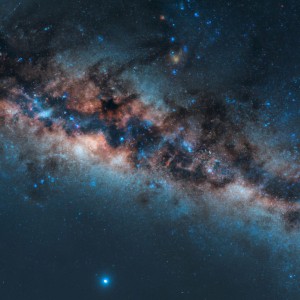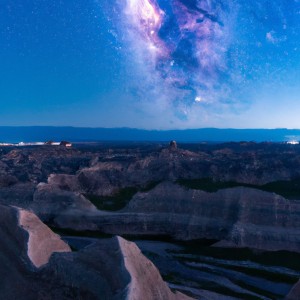Black holes are a fascinating phenomenon in the universe that have puzzled scientists and the general public for years. These enigmatic objects are regions in space where the gravitational force is so strong that nothing, not even light, can escape. Black holes are formed when massive stars collapse at the end of their lives, or when two neutron stars merge. They can range in size from stellar-mass black holes, which are a few times the mass of the sun, to supermassive black holes, which can be millions or billions of times the mass of the sun.
Black holes are not visible to the naked eye, but their presence can be detected through their effects on nearby matter. For example, if a star is orbiting a black hole, the black hole's gravity will cause the star to move in a specific way that can be detected by telescopes on Earth.

So far, black holes have only been observed within our own galaxy, the Milky Way, and in a handful of nearby galaxies. However, it is believed that there are millions or even billions of black holes throughout the universe. Some of these black holes are thought to be "primordial" black holes, which were formed in the early universe shortly after the Big Bang. Others may have formed from the collapse of massive gas clouds or from the merging of black holes.
One of the most exciting discoveries in recent years has been the detection of gravitational waves, which are ripples in space-time caused by the movement of massive objects such as black holes. The first detection of gravitational waves was made in 2015 by the Laser Interferometer Gravitational-Wave Observatory (LIGO), which observed the merger of two black holes. Since then, LIGO and other observatories have made several more detections of black hole mergers, providing new insights into the behavior of these mysterious objects.
Another interesting aspect of black holes is their potential role in the evolution of galaxies. It is believed that supermassive black holes are present at the center of most galaxies, and that their gravitational influence plays a crucial role in the formation and evolution of these galaxies. By studying the behavior of black holes and their interactions with surrounding matter, astronomers hope to gain a better understanding of the evolution of the universe itself.
In conclusion, black holes are a fascinating and complex phenomenon in the universe that continue to intrigue scientists and the public alike. With new advances in technology and observation, we are sure to learn more about these mysterious objects in the coming years.













评论